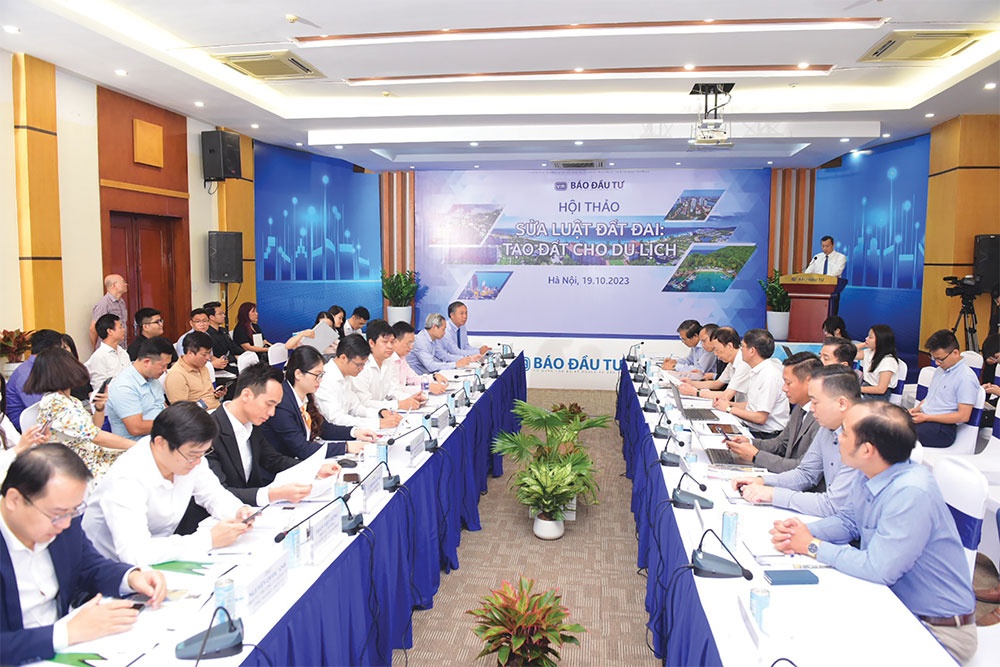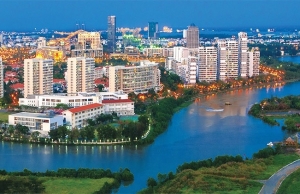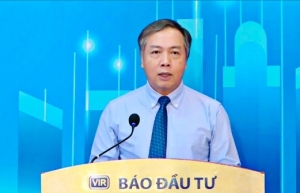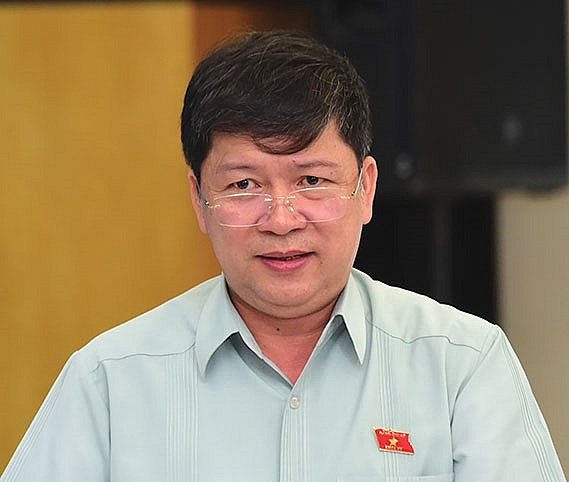Land space shake-up mooted for tourism
 |
| Land space shake-up mooted for tourism, photo Dung Minh |
At the conference on revising the Land Law and creating available land for tourism last week, lawyer Nguyen Hong Chung, also vice chairman of Hanoi Real Estate Club, said that Article 62 of the 2013 Land Law regulates cases where the state can repossess land for socioeconomic development, which does not include for tourism facilities.
According to Chung, although the law stipulates that tourist projects are not subject to land repossessed by the state, due to the important function of tourism in developing the economy, many provinces still repossessed land and allocated it to businesses for development.
As a result, from around 2019, legal issues in tourism real estate began to arise and a series of projects were suspended due to breaches in land allocation regulations, which have still not been resolved.
“The revised Land Law needs to have specific regulations on land for developing tourism facilities. At the same time, there must be open policies on land, taxes, and investment for developing tourism facilities,” Chung said.
“Once we have determined the tourism economy as the key, tourism projects such as amusement parks, entertainment areas, and multipurpose complexes must be added to the state’s land repossessed for socioeconomic development.”
Prof. Dr. Hoang Van Cuong, member of the National Assembly Committee for Finance and Budget, said that the benefits and the basic theory of land repossession must be considered and outlined carefully.
“One of the foremost conditions is to set out clear and transparent criteria of land repossession and the types of projects which meet the enough conditions for land to be repossessed by the state,” Cuong said.
He also emphasised two critical criteria, one being that projects must bring good impact to the whole community and be within the state’s approved land planning, with the investment plan approved by local authorities.
The second criteria is that the proposed projects of land repossessed, regardless of its purpose, must be agreed and supported by the majority of local people. “If both of these criteria are met, we must include that project in the list of land repossessions,” Cuong said.
Meanwhile, real estate legal expert Nguyen Van Dinh said that apart from tourism projects of amusement parks, entertainment areas, and multipurpose complexes, the revised draft Land Law should also contain other tourism projects without accommodation functions.
“However, projects that are suitable for developing tourism should be prioritised for land repossession because they will help develop the socioeconomic situation and create motivation for local tourism,” Dinh said.
The main reason for the sharp decline in the resort real estate segment in recent years, in addition to the impact the pandemic, is the lack of a comprehensive development strategy for the tourism industry, Dinh said, especially the improvement of mechanisms and legal frameworks for effective exploitation of land and infrastructure development, which is an extreme challenge.
According to the Vietnam Real Estate Research Institute in August, among the factors cited as hindering the speed, scale, and determination to participate in Vietnam’s tourism and resort real estate market, economic and financial factors make up 30 per cent, legal factors account for 50 per cent, and other factors account for the remainder.
According to the Vietnam Tourism Marketing Strategy for 2030 released by the Ministry of Culture, Sports, and Tourism in March, Vietnam aims to be the leading attractive tourist destination in Southeast Asia in 2025 with 18 million international and 130 million domestic visitor arrivals each year. By 2030, the tourism sector expects to pull in 35 million and 160 million visitor arrivals respectively.
According to the strategy, Vietnam would become a country with a developed tourism sector by 2030. To meet this goal, the country needs 400,000-500,000 rooms of all types for tourist accommodation.
| Ta Van Ha, Vice Chairman National Assembly Committee for Culture and Education
We are paying attention to how the amendments to the revision of Vietnam’s Land Law will impact tourism in the future, as it is the key to achieving the goals set several years ago on developing tourism into a key economic sector. There are already some regulations in legal documents to encourage the development of tourism in this country. For example, Clause 3 of Article 5 under the Land Law mentions the mechanism to encourage tourism development. Accordingly, organisations and individuals carrying out tourism business of varius types in Vietnam are entitled to the highest investment incentives when the state promulgates and applies policies on the issue. Point G of Clause 4 clearly states that the state holds policies that can encourage and support investment activities, forming large-scale tourist service complex areas, duty-free shop systems, and shopping centres for tourists. In particular, Resolution 103 regulates the task of completing policy institutions, amending and supplementing the list of investment incentives, including for tourism projects in key areas and areas which have difficult socioeconomic conditions but have potential and advantages for tourism development. So the question is how to deal with the key economic sector aspect in the revised Land Law. Thus far, I see only 11 references to “tourism” in the revised Land Law, of which nine words are simply repeating previous information on amending articles 53 and 59 of the Forestry Law. However, in my opinion, this has no meaning or relevance on fostering tourism. Even in the nearly 300-page explanatory report for the amendment of the Land Law, there is no explanation of how this amendment affects the tourism industry as a whole. I also wonder about how we can foster the development of the key economic sector of tourism while commercial housing development projects can be recovered, but there is no land for tourism development, especially in terms of complexes for tourism activities regarding travel and accommodation. This is a priority which needs to be paid attention. Before the National Assembly (NA) promulges the final decision, we are drafting a document for the NA Culture and Education Committee to give opinions to the NA on the revised Land Law. We have collected opinions at the VIR event in order to help make suitable recommendations. |
 | Land rules widened to aid tourism Experts are recommending it is necessary to add types of mix-use housing projects, new urban areas combined with commercial businesses, tourism, entertainment and multipurpose complexes into a revised draft Land Law regulating government land repossession for development. |
 | Proposed land law amendments seek to spur Vietnam tourism Some proposed changes aim to create a dedicated land fund for tourism development, improve land requisition rules, and strike a balance between national interests and the growing tourism sector, promoting infrastructure investments. |
What the stars mean:
★ Poor ★ ★ Promising ★★★ Good ★★★★ Very good ★★★★★ Exceptional
Related Contents
Latest News
More News
- Construction firms poised for growth on public investment and capital market support (February 11, 2026 | 11:38)
- Mitsubishi acquires Thuan An 1 residential development from PDR (February 09, 2026 | 08:00)
- Frasers Property and GELEX Infrastructure propose new joint venture (February 07, 2026 | 15:00)
- Sun Group led consortium selected as investor for new urban area (February 06, 2026 | 15:20)
- Vietnam breaks into Top 10 countries and regions for LEED outside the US (February 05, 2026 | 17:56)
- Fairmont opens first Vietnam property in Hanoi (February 04, 2026 | 16:09)
- Real estate investment trusts pivotal for long-term success (February 02, 2026 | 11:09)
- Dong Nai experiences shifting expectations and new industrial cycle (January 28, 2026 | 09:00)
- An Phat 5 Industrial Park targets ESG-driven investors in Hai Phong (January 26, 2026 | 08:30)
- Decree opens incentives for green urban development (January 24, 2026 | 11:18)


 Tag:
Tag:





















 Mobile Version
Mobile Version